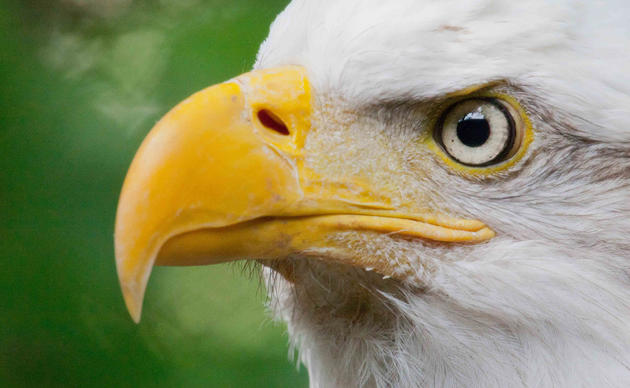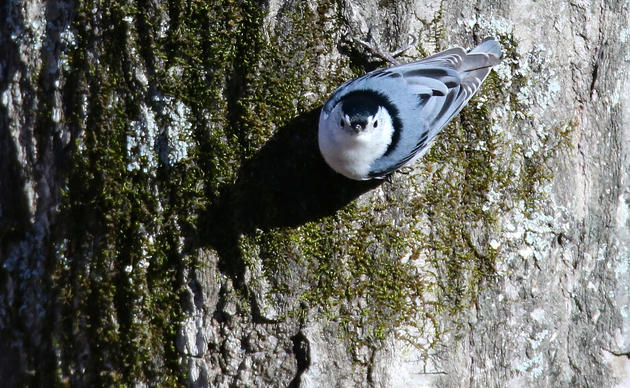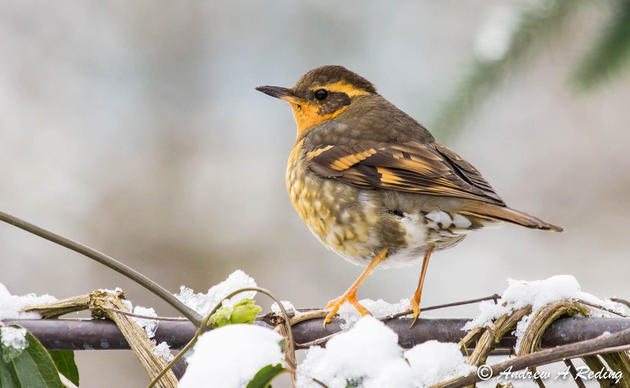“Climate change is the biggest threat facing birds and people, and the clock is ticking. Through our statewide programs, partnerships, and strong member support, Audubon Washington is steadfast in its determination to say ‘Yes’ to climate action. Today we stand in support of sound science and our vision for a carbon-free Washington and urge our members and all residents of Washington state to support I-1631.” -- Gail Gatton, Executive Director, Audubon Washington
“As a leading voice for conservation in the state, our number one priority is advocating for a healthier environment and protecting natural ecosystems for the benefit of birds and people. For this reason, Audubon Washington wholeheartedly supports immediate climate action and is proud to endorse I-1631.” -- Doug Santoni, Chair, Audubon Washington Board of Directors
It is time to reject the status quo and legacy of inaction in our state and put what will be the nation’s strongest climate policy on the books.
As designed, I-1631 will reduce Washington’s carbon pollution by 50 million metric tons by 2050. Additionally, $250 million annually will be invested in projects to increase the resilience of our waters and forests to the impacts of climate change. This includes restoring and protecting estuaries, fisheries and marine shoreline habitats vital for birds to survive. It also includes programs to improve forest health and reduce vulnerability to changes in hydrology, insect infestation, wildfires, and drought. This is critical support that will protect important bird habitats now and in the future.
Science Says We Must Act Now
Audubon’s Birds and Climate Change Report details how rising temperatures influence the range of 588 North American bird species, finding that 314 of those are threatened or endangered by climate change. In Washington state, 189 species of birds are at risk. During the past 50 years, more than 60 percent of wintering North American bird species have shifted their winter ranges northward. Soon, they may have nowhere left to go. To protect birds in a changing climate, we must reduce the carbon emissions responsible for climate change.
Guided by science and a moral imperative, Audubon Washington has been at the forefront of the climate conversation in our state. We strongly supported I-732, the carbon tax initiative that went before voters in 2016. In recent legislative sessions we advocated for a carbon tax and a 100 percent Clean Energy Standard. Despite the legislature’s failure to act, we will continue to advance policy efforts – in the legislature and at the ballot – to reduce carbon emissions and accelerate the transition to clean, renewable sources of electricity.
Along with our endorsement of I-1631, we will harness Audubon’s state and national resources to support critical field organizing and signature gathering efforts. At the same time, we will continue to engage our grassroots, grass-tops and business connections to build the political will that is so urgently needed to see effective climate action be passed into law.
About Audubon Washington
Established in 1981, Audubon Washington works statewide with its 25 independent chapters and 35,000 members on the conservation of the sagebrush shrub steppe ecosystem in Eastern Washington, protection of coastal estuaries, and actions that address climate change, the number one threat to birds today. Through the Seward Park Audubon Center, we provide science, nature and environmental education programs for youth and families. Learn more at http://wa.audubon.org/, @audubonWA
For Media Inquiries:
Samara Villasenor
425-255-0890
samara@greatworkcommunications.com
For Member/Volunteer Inquiries:
Ben Silesky, Field Organizer
425-830-5753
bsilesky@audubon.org
Editor’s Note: The following Audubon Chapters endorse I-1631. These endorsements represent Audubon’s commitment to supporting strong climate action and passing effective climate policy that will prevent further damage to our climate:
Admiralty Audubon Society
Black Hills Audubon Society
Eastside Audubon Society
Grays Harbor Audubon Society
Kitsap Audubon Society
Kittitas Audubon Society
North Cascades Audubon Society
North Central Washington Audubon Society
Olympic Peninsula Audubon Society
Pilchuck Audubon Society
Rainier Audubon Society
Seattle Audubon Society
Skagit Audubon Society
Tahoma Audubon Society
Vancouver Audubon Society
Vashon-Maury Audubon Society
Whidbey Audubon Society



